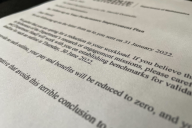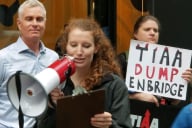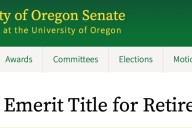You have /5 articles left.
Sign up for a free account or log in.
At TIAA-CREF this week, the volume of calls from clients is up 30 percent from the same point a year ago.
Given the dramatic drops on Wall Street, it's not surprising that many in academe are wondering about the status of their retirement funds. But a big question for academe may be whether those funds are shrinking substantially enough to prompt professors to delay retirement. Many think that the drops this week -- coming in a year in which funds were already going down -- may in fact be that significant.
"When the market went down a lot in 2000, we definitely saw some professors delaying a retirement decision," said John Vineyard, an Ithaca, N.Y., investment counselor whose clients include many academics. While he said it was too soon to be sure, "I'm sure there's a lot of concern."
Robert Clark, a professor of management at North Carolina State University who has conducted several studies of retirement patterns among faculty members, said that the long-term picture remains uncertain. But he said that in the short run, more professors are likely to stay put. "If you were thinking about annuitizing and you have 5 or 10 percent less, you might reconsider," he said. Many are likely to think that staying an extra year or two could result in a significantly larger retirement fund, assuming markets recover.
Clark said that the impact might be less evident at public colleges with defined benefit state retirement plans. But he noted that the population using TIAA-CREF and other investment accounts includes many professors at the private institutions that have historically been the most concerned about the end of mandatory retirement for faculty members, and that have most wanted to have some predictability about when academics leave full-time work.
Kenneth E. Cool, president of Emeriti Retirement Health Solutions, a company that works with colleges to provide health insurance for retirees, said that while information remains anecdotal, "we're hearing about people on the cusp of retirement who are deferring their retirement decisions, and they are thinking about deferring because obviously the accumulations have dropped, some on the order of 15 percent or more."
Most academics (and most people) don't make the decision to retire in a single day or week -- and those who predict a delay in retirements stress that it's not just because of the collapses and bailouts this week that have led stocks to tumble. Rather it is that 2008 has already been a tough year, economic uncertainty can produce caution, and with people living longer, many want to have more money before they stop full-time work.
Some of these issues are not unique to higher education. But for many colleges, the issues raised by delays in retirement pose particular challenges. In higher education, tenured faculty members have job security unlike that of much of American society. And many colleges -- even as they value the experience of their senior professors -- see retirements as a way to assure that departments attract new thinkers, and that academic priorities can be realigned. In addition, because higher education until 1994 had an exemption from mandatory retirement bans, colleges have only relatively minimal experience with professors -- not institutions -- controlling the retirement timeline.
Even if they can't control that timeline, many colleges have been making assumptions about when the baby boom generation of faculty members would retire. And any delay could have a real impact on when jobs open up for younger scholars.
Kiernan Robert Mathews is director of the Collaborative on Academic Careers in Higher Education, which studies the policies and programs used by colleges to effectively recruit and retain talented academics starting their careers. He said that most of the colleges participating have been expecting a retirement wave. "But while we were expecting most baby boomers to retire at 65, we're finding them sticking around longer," he said.
Delays are likely to frustrate many younger academics. "I get the sense that there is the concern that: When is it going to be our turn?" Mathews said. "But you can't blame the baby noomers if they haven't earned enough to retire." For many academics, these issues are a mix of the practical and philosophical. When Brian Leiter, a philosopher at the University of Chicago and a popular blogger, recently expressed concern about job prospects for young academics, one reader asked whether older academics have an obligation to retire, to make way for new blood -- and the response on all sides was intense.
The backdrop to the current developments is evidence that many faculty members are already moving beyond any assumptions about 65 as an automatic retirement age. A survey released last year by TIAA-CREF found that among academics today, 70 is seen as a more likely target age for retirement than 65. And 9 percent of academics surveyed -- well before the poor investment performance of 2008 -- saw their target age for retirement as older than 70.
The Impact of the Markets
So what's going on in people's accounts? In an era of many choices, it's impossible to generalize.
TIAA-CREF, asked for some examples of typical outcomes, provided three scenarios, based on whether individuals are invested in conservative, moderate or aggressive portfolios. For the three different scenarios, losses in 2008 through the end of August would have been 1 percent, 5 percent and 8 percent. A key point is that those losses would not include the notable losses of this week. TIAA-CREF officials stressed that there are so many combinations possible today that no one fund is "typical," but said that most investors are middle of the road.
Dan Keady, director of financial planning for TIAA-CREF, said it's impossible to know how many people in the different types of fund allocations will now put off retirement. He said that TIAA-CREF has encouraged diversification as a tool to gain when the markets are healthy and to minimize losses in times like these. He also said that the pension giant advises participants to run "a stress test" on their funds, and to work with TIAA-CREF to determine how they would fare in various scenarios, including one in which markets are down substantially and inflation is up.
Keady said he hoped that more fund participants would consider the need to protect themselves from sudden downturns. "It's so important for clients to have guard rails," he said.
Officials of Fidelity, another pension company with a large higher education clientele, said that the market remains too volatile for the company to comment.
Another major player for academics planning retirements is AIG Retirement (formerly called AIG Valic). The company responded to questions via e-mail and said first that the despite the severe problems facing AIG, the retirement funds were not being affected and were managed separately. The company noted similar statements issued by the National Association of Insurance Commissioners. "The underlying strength of VALIC, the insurance company backing AIG Retirement, remains unaffected by issues with the parent company," the AIG Retirement statement said.
On the issue of whether more professors would delay retirements, the AIG statement said that "the market volatility we are currently facing may prompt some to continue working and delay retirement. The importance of asset allocation helps to mitigate the risks associated with short term volatility of the market and minimizes its impact."
Practical Advice
So what should colleges do?
Valerie Martin Conley, director of the Center for Higher Education at Ohio University and author of a report on college retirement policies issued last year by the American Association of University Professors, said that she thinks colleges may need to start by recognizing patterns. Just as economic downturns bring increases in enrollments, they may bring delays in faculty retirements.
At the same time, she said, it was important for colleges to remember the factors that they do and don't control. On retirement decisions, she said, the "big three" factors for making the decision are age, health and wealth. And another key fact is that people "make retirement decisions over a period of time," not just at one point when they announce it.
"If you are an administrator, and you are thinking about what to do, wealth is more under control of institutions than the other factors," she said. But even there, colleges may face limits. For example, research suggests that many potential retirees continue to work not for their salaries, but for their health insurance. This leads some institutions to add or improve retiree health insurance. But for some public universities, there may be little flexibility from state benefits plans, she said. As a result, this points to the need for senior administrators to "get in those conversations early enough" with state retirement agencies so that public colleges have tools to use to make retirement feasible for their professors.
The AAUP report Conley wrote also stressed the importance of creating retirement paths as opposed to a working/retired dichotomy. More colleges are creating part-time programs so that retirement can be phased in, for example.
More analysis is needed, she said, of the impact of a range of policies -- buyouts, part-time work, and so forth -- so that colleges have a better sense of whether certain policies will be effective.
Cool, of Emeriti, said he is already seeing increased interest from colleges in talking about additional benefits that can be offered to retirees. "I think colleges are very concerned about orderly retirement," he said, and as a result are willing to consider benefits to encourage retirements.
Gary Rhoades, director of the Center for the Study of Higher Education at the University of Arizona, and the next general secretary of the AAUP, said he has no doubt the economic downturn will affect retirement patterns. He said that a smaller market dip a few years ago took place just before a colleague was to retire; the man ended up sticking around for a few more years, citing the investment losses in his retirement fund as the reason.
Rhoades cautioned that many of the tools that appeal to administrators, such as buyouts, aren't necessarily effective at improving institutions. "Often, you see retirement schemes and the people you want to retire don't and the people you don't want to retire do," he said. "It's hard to fine tune" the programs.
A particular concern, Rhoades said, is the "squeeze on the young generation." Not only might jobs be harder to find, but institutions are pushing to offer new faculty members less generous health and other benefits than long-time professors.
Looking broadly, Rhoades said, it is important to go beyond the campus level, and for academic leaders to talk about the potential loss for society of a lack of good job opportunities for younger scholars. "What is really needed at the national and state levels is to get out the message that this really important work force is getting old," Rhoades said. And higher education needs levels of financial support so that institutions don't respond to retirement delays by killing other positions and benefits. "We need to make sure that we don't have a missing generation of knowledge generators," he said.








